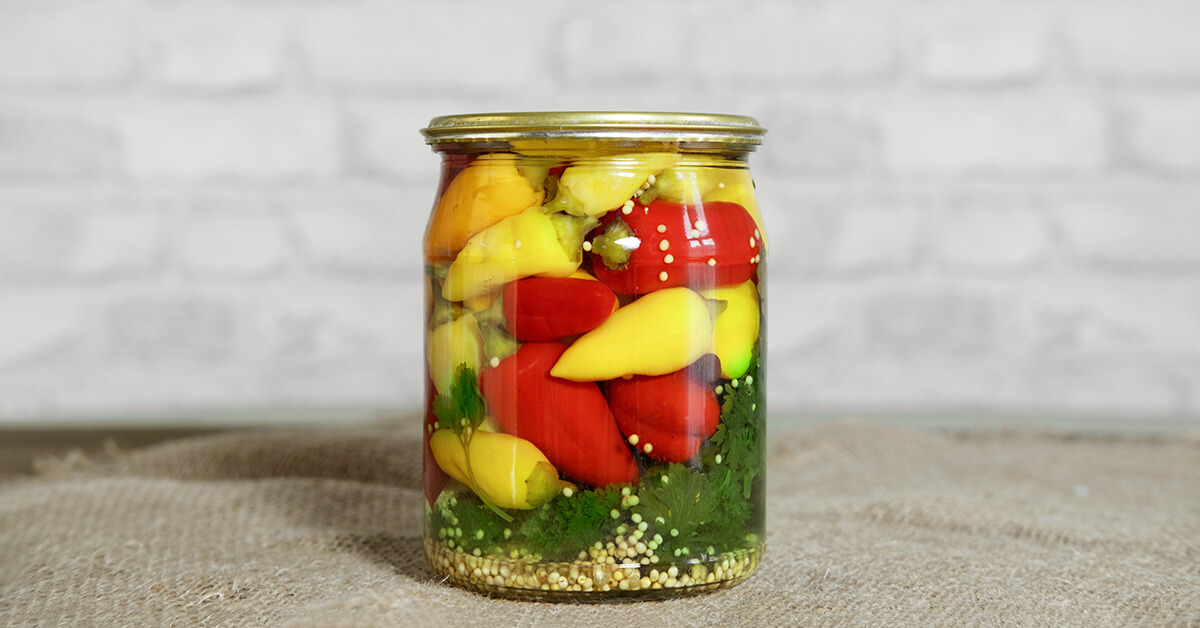June 10, 2025

Burda on Healthcare: In Public Health We Trust. Or Not.
I dabble in home canning. At the end of the summer vegetable-growing season outside of Chicago, I put up jalapeno and Chicago-style sport peppers in pint jars. I like to give family, friends and neighbors a jar of canned peppers for the holidays. Green peppers in a jar topped with a red bow says Christmas to me.
When I give them to someone, and they say last year’s peppers were great and they’re looking forward to trying this year’s batch, I throw out my usual line: “If this journalism thing doesn’t work out, I always could open a home canning business.” It’s not that funny, especially after you’ve heard it dozens of times, but it’s better than saying nothing.
Well, the other day I brought a jar over to my neighbor’s house because her son was in from out of town. I know he likes my canned hot peppers. He wasn’t home, so I left the jar with his mom. She thanked me and said her son will love them. Then I uttered my usual line.
Her response caught me off guard. She started to go into a MAGA-inspired diatribe about how I would have to go through all kinds of state and federal health regulations and regular inspections if I wanted to start a home-canning business and sell my jars of hot peppers to the public. I politely agreed and said I hope he likes them. Then I walked back across the street, dodging an unpleasant conversation there.
I take every precaution to can my peppers safely — I sterilize everything and pressure cook the jars longer than recommended — to kill any botulism bacteria that could contaminate the peppers and accidentally kill someone who eats them. No one’s died yet.
But my neighbor would rather trust me — an amateur who drinks a few beers while I prep the peppers, brine, jars and lids — with her health and the health of her son than professional health inspectors, public health experts and epidemiologists who work for state and federal governments and whose sole purpose is protecting them from people like me. Regulations and regulators are simply expensive nuisances that make small businesses go under.
That brief, 30-second exchange between friends and neighbors captured the essence of the public health crisis under the Trump regime. You either believe public health agencies and their researchers, scientists and inspectors are here to protect us or you don’t. Pasteurized milk versus raw milk.
Three recent consumer health polls, all released within about a week of each other, documented that divide.
Same News, Different Interpretations

On April 29, the Harvard T.H. Chan School of Public Health at Harvard University and the de Beaumont Foundation released the results of a national poll of 3,343 U.S. adults ages 18 or older. They asked the adults what they thought of the “changing public health landscape” under the Trump regime. Regime is my word, not theirs.
Here are some of the more interesting findings:
- 60% of Democratic respondents said they trust recommendations from the Centers for Disease Control and Prevention (CDC) “a great deal” to improve health, compared with 19% of Republican respondents.
- 49% of Democratic respondents said they trust recommendations from their state health department “a great deal” to improve health, compared with 18% of Republican respondents.
- 49% of Democratic respondents said they trust recommendations from their local health department “a great deal” to improve health, compared with 22% of Republican respondents.
That divide exists despite the fact that respondent members of both major political parties say they are following leadership changes at federal health agencies. Seventy-six percent of Democratic respondents said they are following those changes “very” or “somewhat” closely compared with 74% of Republican respondents.
Divergent Views on Food Safety
 On May 1, the Kaiser Family Foundation released the results of one of its health tracking polls on health information and trust. This one asked a representative sample of 1,380 U.S. adults ages 18 or older how they felt about major cuts in staff and funding at federal health agencies under the Trump regime. Again, regime is my word, not theirs.
On May 1, the Kaiser Family Foundation released the results of one of its health tracking polls on health information and trust. This one asked a representative sample of 1,380 U.S. adults ages 18 or older how they felt about major cuts in staff and funding at federal health agencies under the Trump regime. Again, regime is my word, not theirs.
Here are some of the more interesting findings:
- 89% of Democratic respondents said they oppose major cuts to staff and spending at federal health agencies compared with 27% of Republican respondents.
- 89% of Democratic respondents said they oppose major cuts in federal funding for tracking infectious disease outbreaks compared with 51% of Republican respondents.
- 92% of Democratic respondents said they oppose major cuts in federal funding for research at universities and medical centers compared with 44% of Republican respondents.
- 91% of Democratic respondents said cuts in staff and spending at federal health agencies will have a “mostly negative impact” on food safety, compared with 17% of Republican respondents.
It’s the huge gap in how members of the two major political parties said they feel about these issues that caught my eye. Saying the gap is statistically significant is an understatement.
RFK Jr. and Trump Versus Doctors and Pediatricians
 On May 6, the Kaiser Family Foundation released the results of another one of its health tracking polls on health information and trust. This one asked a representative sample of 1,380 U.S. adults ages 18 or older about how they felt about vaccine safety and trust under the Trump regime. My word, not theirs.
On May 6, the Kaiser Family Foundation released the results of another one of its health tracking polls on health information and trust. This one asked a representative sample of 1,380 U.S. adults ages 18 or older about how they felt about vaccine safety and trust under the Trump regime. My word, not theirs.
Here are some of the more interesting findings:
- 70% of Democratic respondents said they have “a great deal” or a “fair amount” of trust in the CDC to provide reliable vaccine information compared with 51% of Republican respondents.
- 67% of Democratic respondents said they have “a great deal” or a “fair amount” of trust in the Food and Drug Administration to provide reliable vaccine information compared with 52% of Republican respondents.
- 16% of Democratic respondents said they have “a great deal” or a “fair amount” of trust in HHS Secretary Robert F. Kennedy Jr. to provide reliable vaccine information compared with 73% of Republican respondents.
- 43% of Democratic respondents correctly said that the myth that mRNA vaccines can change your DNA is “definitely false” compared with 12% of Republican respondents.
When you have roughly the same percentage of Republican respondents trusting RFK Jr. and Trump to provide reliable vaccine information as much as they do their doctor or child’s pediatrician, I’m scared. I wouldn’t trust either of those two idiots to put leftover pizza in the fridge, let alone decide whether my children should receive life-saving vaccines.
The results from the three consumer polls made me realize there’s no way I could ever convince my neighbor that health inspections of food manufacturing facilities is a good thing, despite the added cost. It’s better to trust the manufacturers and the people who work for them.
Like U.S. Senator Joni Ernst (R-Iowa) said, we’re all going to die. Just not from my canned hot peppers.
Thanks for reading.





